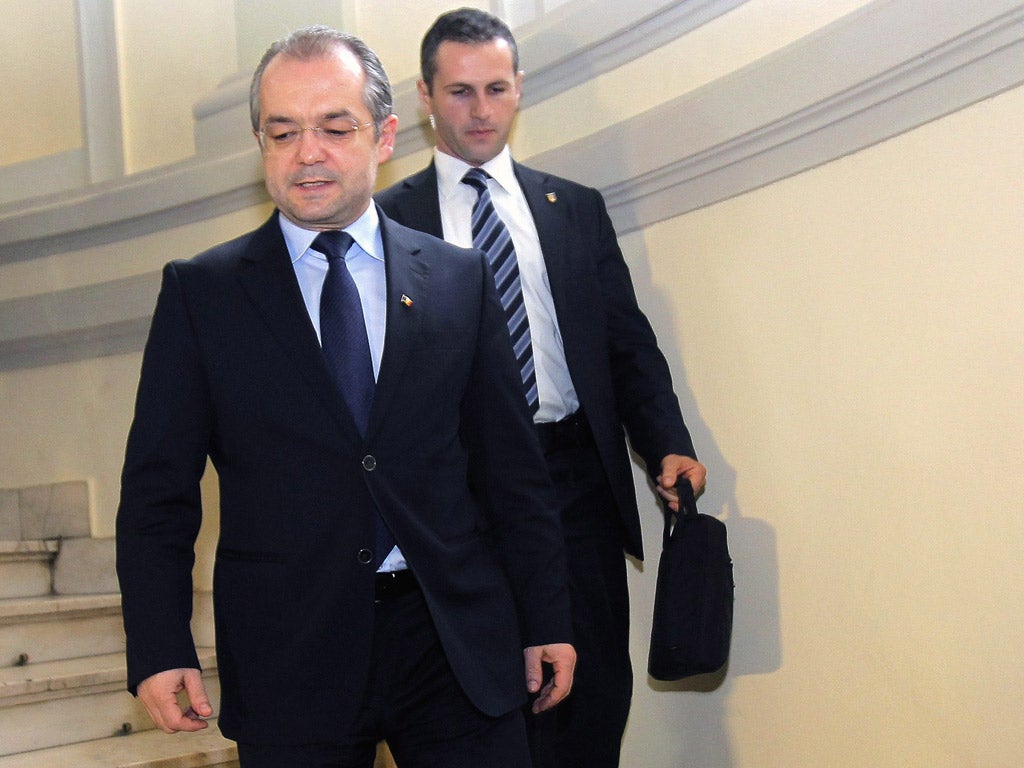Crippling cutbacks force Romanian premier to quit
New elections on the way as government finally succumbs to weeks of tension and protests

Romania's Prime Minister became the latest victim of the austerity measures beings implemented across European Union nations yesterday when he resigned following of weeks of protests over spending cuts.
Emil Boc made a televised speech saying that he had decided to step down in order "to release the tension in the country's political and social situation".
Mr Boc, who has been Prime Minister since 2008, said he did not want to cling on to power and was leaving "in order not to lose what Romania has won with so much suffering, the country's economic stability".
The President, Traian Basescu, named the Justice Minister, Catalin Predoiu, as Mr Boc's replacement, and the country will hold parliamentary elections by November at the latest. Although Mr Basescu's position is meant to be ceremonial, in actual fact he wields a great deal of power and makes many key decisions, a situation that has helped contribute to the fractious political climate.
The Boc government's unpopularity was partly down to spending cuts imposed as conditions of a €20bn (£16.6bn) loan from the International Monetary Fund in 2009. Mr Basescu must now win approval from all political parties for Mr Predoiu's candidature, or appoint a more permanent figure.
Approval ratings of Mr Boc's centrist party have fallen to less than 20 per cent, and his departure may be a manoeuvre by Mr Basescu, a former leader of the same party, to offer him as a sacrificial lamb to the protesters.
There have been large protests in Bucharest and regional cities for several weeks. The first major unrest was sparked by the removal of Raed Arafat, the deputy Health minister, who had opposed controversial reforms to privatise the country's health system. Dr Arafat, a Palestinian immigrant who came to Nicolae Ceausescu's Romania in the 1980s to practice medicine and later set up an emergency ambulance service, was a popular figure noted for his battles against government inefficiency and corruption.
Although he was reinstated, the protest movement has continued and taken on a broader agenda. In recent weeks, people at rallies have held banners with slogans such as "What are we going to eat, Basescu?" and "Down with the government!"
While Romania has not adopted the euro yet, it has committed to join the single currency club at some point. It remains one of the poorest nations of the 27-member bloc, in part due to the crippling legacy of Ceausescu's brutal brand of Communism. Some parts of the country lack running water and electricity and the average wage is only £300 per month.
Aggressive public spending cuts since 2009 have led to simmering discontent, which has been threatening to boil over. Public sector salaries have been cut by a quarter and sales tax has risen.
Join our commenting forum
Join thought-provoking conversations, follow other Independent readers and see their replies
Comments
Bookmark popover
Removed from bookmarks